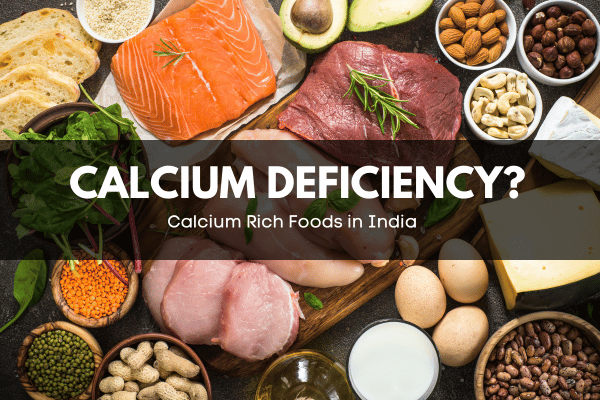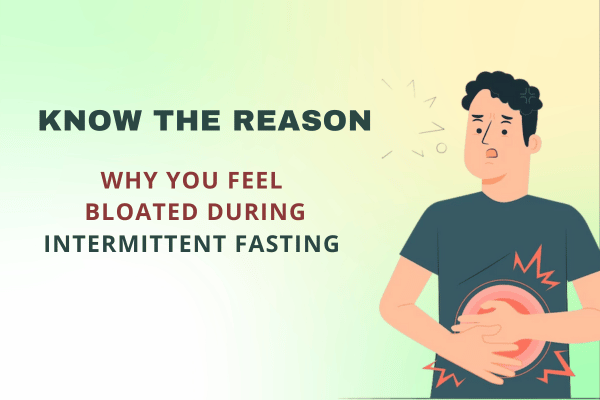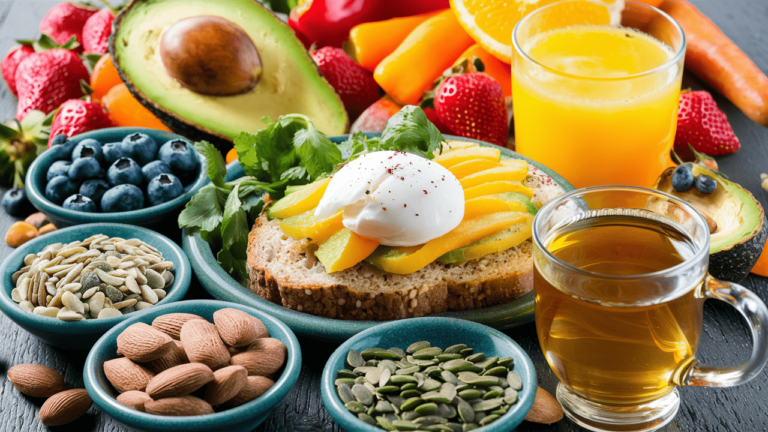Calcium Rich Foods in India for Calcium Deficiency
Calcium is an essential mineral that plays a vital role in maintaining overall health. It is crucial for bone health, muscle function, nerve transmission, and more. While calcium is commonly associated with dairy products, there are numerous calcium rich foods in India.
Top Calcium-rich Foods in India
- Dairy Products: Milk, yogurt, and cheese are excellent sources of calcium. They are readily available and widely consumed in Indian households.
- Leafy Greens: Vegetables like spinach, kale, and collard greens are not only rich in calcium but also provide a plethora of other nutrients.
- Nuts and Seeds: Almonds, sesame seeds (til), and chia seeds are packed with calcium and make for convenient snacks or additions to meals.
- Fortified Foods: Many Indian food products, such as fortified cereals and plant-based milk alternatives, are enriched with calcium for added nutritional value.
Why Calcium-rich Foods?
Incorporating calcium-rich foods into your diet is important for various reasons. Apart from promoting strong bones and teeth, calcium also aids in muscle contraction, blood clotting, and nerve function. The recommended daily intake of calcium varies depending on age, gender, and other factors, but ensuring an adequate supply is vital for overall well-being.
Traditional Calcium-rich Foods in India
- Indian Cheese (Paneer): Paneer, a fresh cheese commonly used in Indian cuisine, is an excellent source of calcium and protein.
- Sesame Seeds (Til): Widely used in Indian cooking, sesame seeds are rich in calcium and can be incorporated into various dishes and sweets.
- Green Leafy Vegetables: Traditional Indian recipes often include leafy greens like fenugreek (methi), amaranth (chaulai), and mustard greens (sarson), all of which are rich sources of calcium.
Cooking Methods for Preserving Calcium
To retain the calcium content of foods, it’s essential to employ cooking techniques that minimize nutrient loss. Steaming, blanching, and stir-frying are better options compared to boiling, which can lead to leaching of nutrients into the cooking water.
Combining Calcium-rich Foods for Optimal Absorption
While consuming calcium-rich foods is important, it’s equally crucial to ensure optimal absorption. Pairing calcium-rich foods with sources of vitamin D, such as fatty fish, eggs, and fortified foods, can enhance calcium absorption. Conversely, certain substances like oxalates and phytates, found in foods like spinach and whole grains, can inhibit calcium absorption if consumed in excess.
Calcium Supplements
In some cases, dietary sources may not provide adequate calcium, leading to a need for supplementation. Calcium supplements come in various forms, including calcium carbonate and calcium citrate. It’s essential to consult a healthcare professional before starting any supplement regimen to determine the appropriate dosage and ensure compatibility with existing medications.
Incorporating Calcium-rich Foods into Daily Diet
Including calcium-rich foods in your daily meals can be simple and delicious. Adding dairy products to breakfast, incorporating leafy greens into salads or curries, and snacking on nuts and seeds are easy ways to boost your calcium intake. Experimenting with traditional Indian recipes that feature calcium-rich ingredients can also add diversity to your diet.
Calcium Deficiency
A deficiency in calcium can lead to various health problems, including osteoporosis, muscle cramps, and dental issues. Symptoms of calcium deficiency may include brittle nails, muscle weakness, and numbness or tingling in the extremities. Individuals at risk of calcium deficiency, such as postmenopausal women and those with lactose intolerance, should pay particular attention to their calcium intake.
FAQs About Calcium-rich Foods in India
-
What are the best non-dairy sources of calcium?
- Non-dairy sources of calcium include leafy greens, nuts, seeds, and fortified foods like tofu and plant-based milk alternatives.
-
Can calcium-rich foods be consumed by lactose intolerant individuals?
- Yes, lactose intolerant individuals can still obtain calcium from non-dairy sources such as leafy greens, nuts, seeds, and fortified foods.
-
Are calcium supplements necessary for children?
- Calcium supplements for children may be necessary if dietary intake is insufficient. However, it’s best to consult a pediatrician for personalized recommendations.
-
How can vegetarians ensure they get enough calcium?
- Vegetarians can ensure adequate calcium intake by including dairy products, leafy greens, nuts, seeds, and fortified foods in their diet.
-
Is it possible to consume too much calcium?
- Excessive calcium intake from supplements may lead to adverse effects such as kidney stones and gastrointestinal issues. It’s important to follow recommended dosages and consult healthcare professionals when supplementing.











